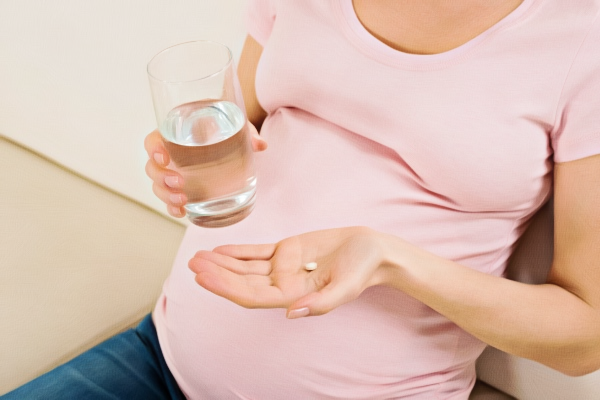Drug Use During Pregnancy Laws in California
Pregnant women who use drugs are in a difficult situation. They want what’s best for their unborn child, but fear being charged with a crime or having their baby taken from them if they ask for help. Understanding California laws on drug use during pregnancy can help women make the best decisions for themselves and their families.
Is substance abuse a crime during pregnancy?
In California, there are no laws stating that substance abuse during pregnancy is a crime.
Have women been prosecuted for drug abuse during pregnancy?
California does not prosecute women solely for drug abuse during pregnancy. However, it is important for pregnant women experiencing drug abuse to get help right away. In 2019, a Hanford area woman was charged with murder after her stillborn baby tested positive for methamphetamine.

Is substance abuse during pregnancy considered child abuse? Is it grounds for civil commitment for substance abuse during pregnancy?
No. According to the Guttmacher Institute, substance abuse during pregnancy is neither considered child abuse, nor is it grounds for civil commitment in California.
Will health care workers have to report substance abuse during pregnancy?
While substance abuse during pregnancy is not against the law in California, doctors and licensed nurses are mandated reporters. Potential abuse and neglect of the newborn may be a concern.
Is a drug test required if drug use has been suspected during pregnancy?
The U.S. Supreme Court has ruled that drug tests can’t be carried out on a pregnant woman without her consent or a warrant, “if the purpose is to alert the police to a potential crime.” However, it’s possible that drug testing with or without consent could be done for other purposes, such as to provide medical care.
What happens if I fail a drug test while pregnant?
There is no one answer for what happens if a pregnant woman fails a drug test in California. The outcome may depend on who is conducting the test, as well as the women’s willingness to seek treatment.
Will they take my baby if I test positive at birth?
California will not remove a newborn based solely on the fact that the mother tested positive for substances. The applicable law, Article 4. Perinatal Health Care, places a strong emphasis on providing support and intervention for new mothers experiencing substance abuse. A needs assessment is performed before the baby is released from the hospital. Part of this assessment is to, “Determine the level of risk to the newborn upon release to the home.”
And at this time, there aren’t any routine California newborn drug testing laws on the books. The state’s mandatory newborn screening checks for specific genetic disorders, and not the presence of substances.
Pregnancy and Substance Abuse
Pregnancy and addiction is an evolving issue. Recreational marijuana is legal in California, raising new questions about the effects of substance abuse during pregnancy. Some pregnant women take marijuana while pregnant, claiming it helps with nausea.
According to the National Institute on Drug Abuse, 30% of people who use marijuana have some degree of marijuana use disorder. These people experience withdrawal symptoms when they stop using the drug.

Research regarding marijuana use during pregnancy is mixed. Some children whose mothers used marijuana during pregnancy later show difficulty with problem solving skills, memory, and paying attention. Because of the potential for marijuana to negatively impacting a baby’s brain development, the American College of Obstetricians and Gynecologists recommends that women avoid marijuana use while trying to conceive, during pregnancy, and while breastfeeding.
Pregnancy and drug addiction, particularly opioids, is of concern in California. Neonatal Abstinence Syndrome (NAS), also called Neonatal Opioid Withdrawal Syndrome (NOWS), is a set of symptoms newborns experience if their mothers used opioids during pregnancy. Babies experiencing NAS/NOWS may cry excessively, have seizures, tremble, and have difficulty eating, among other symptoms. In 2017, for every 1,000 births in California, there were 2.5 cases of NAS/NOWS.
Sources:
https://www.drug-rehab-headquarters.com/california/category/drug-rehab-for-pregnant-women/
https://abc7.com/stillborn-baby-had-high-levels-of-meth-mother-charged-with-murder/5679361/
https://www.guttmacher.org/state-policy/explore/substance-use-during-pregnancy#
https://leginfo.legislature.ca.gov/faces/codes_displaySection.xhtml?sectionNum=11165.7.&lawCode=PEN
https://www.aclu.org/other/ferguson-v-city-charleston-social-and-legal-contexts
https://leginfo.legislature.ca.gov/faces/codes_displaySection.xhtml?sectionNum=123605&highlight=true&lawCode=HSC&keyword=123605
https://www.cdph.ca.gov/Programs/CFH/DGDS/Pages/nbs/IIP.aspx
https://www.drugabuse.gov/publications/research-reports/marijuana/marijuana-addictive
https://www.drugabuse.gov/publications/research-reports/marijuana/can-marijuana-use-during-pregnancy-harm-baby
https://www.acog.org/womens-health/faqs/marijuana-and-pregnancy
https://medlineplus.gov/ency/article/007313.htm
https://www.drugabuse.gov/drug-topics/opioids/opioid-summaries-by-state/california-opioid-involved-deaths-related-harms

